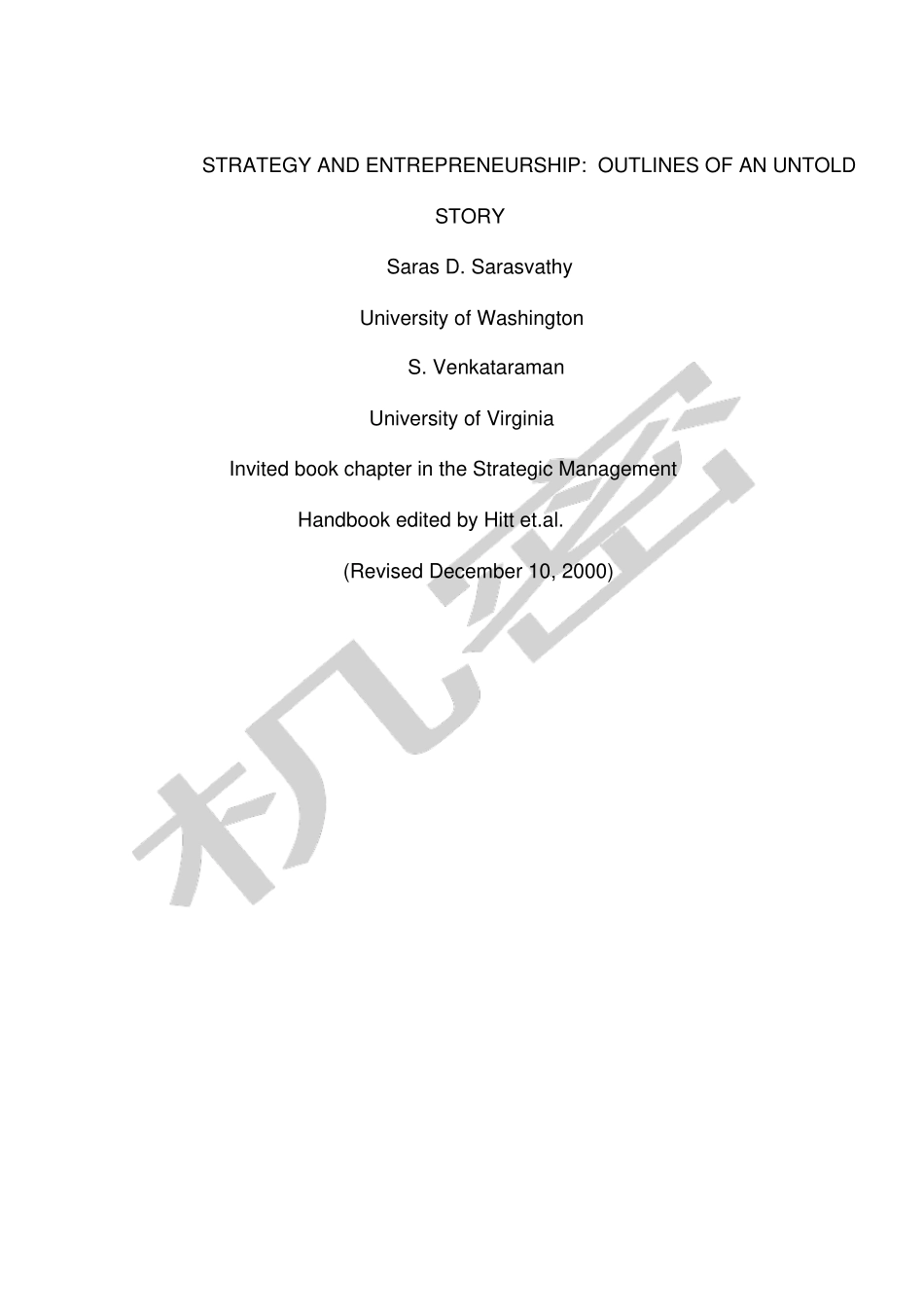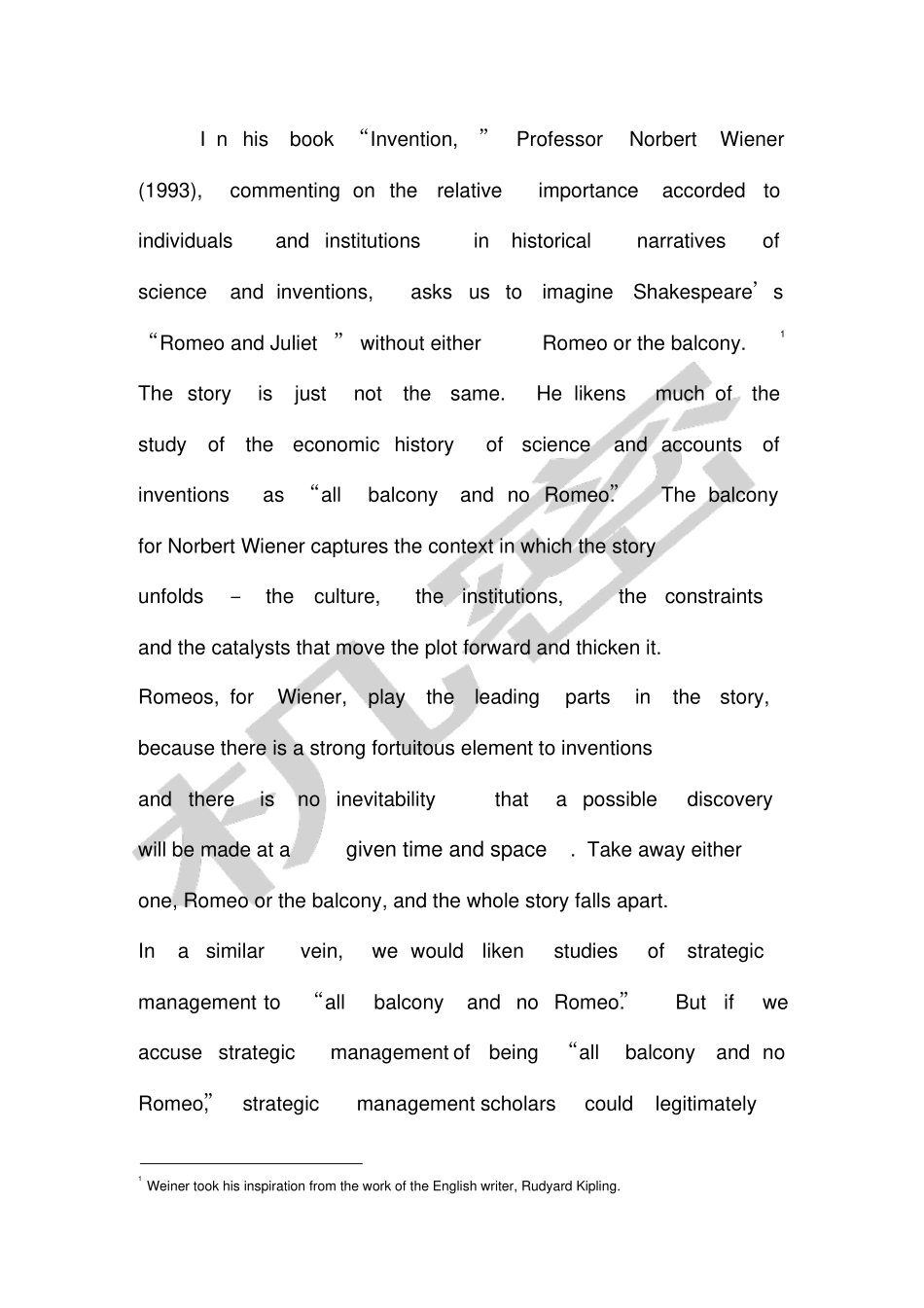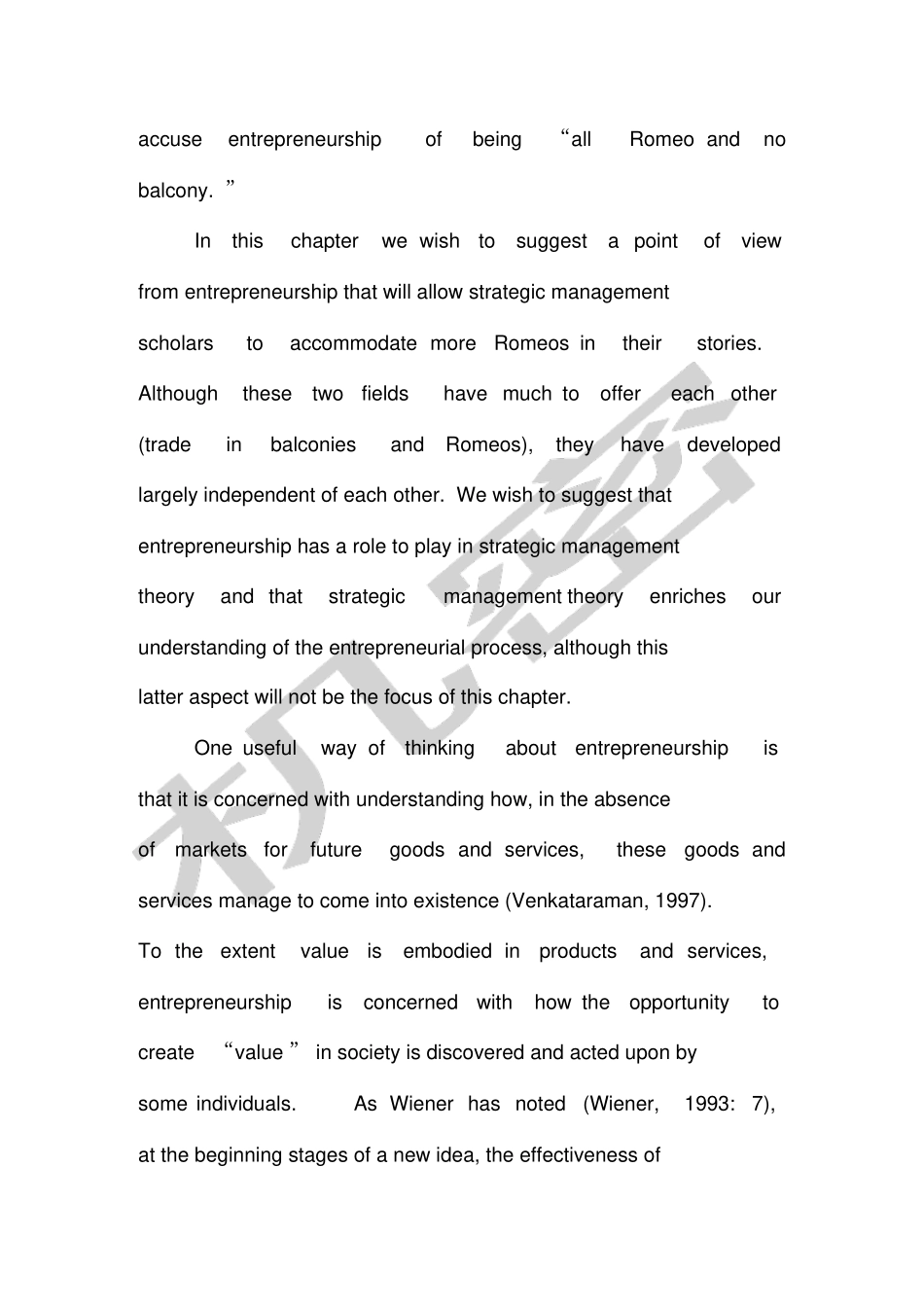STRATEGY AND ENTREPRENEURSHIP: OUTLINES OF AN UNTOLD STORY Saras D. Sarasvathy University of Washington S. Venkataraman University of Virginia Invited book chapter in the Strategic Management Handbook edited by Hitt et.al. (Revised December 10, 2000) I n his book “Invention,” Professor Norbert Wiener (1993), commenting on the relative importance accorded to individuals and institutions in historical narratives of science and inventions, asks us to imagine Shakespeare’s “Romeo and Juliet ” without either Romeo or the balcony.1The story is just not the same. He likens much of the study of the economic history of science and accounts of inventions as “all balcony and no Romeo.” The balcony for Norbert Wiener captures the context in which the story unfolds –the culture, the institutions, the constraints and the catalysts that move the plot forward and thicken it. Romeos, for Wiener, play the leading parts in the story, because there is a strong fortuitous element to inventions and there is no inevitability that a possible discovery will be made at a given time and space. Take away either one, Romeo or the balcony, and the whole story falls apart. In a similar vein, we would liken studies of strategic management to “all balcony and no Romeo.” But if we accuse strategic management of being “all balcony and no Romeo,” strategic management scholars could legitimately 1 Weiner took his inspiration from the work of the English writer, Rudyard Kipling. accuse entrepreneurship of being “all Romeo and no balcony. ” In this chapter we wish to suggest a point of view from entrepreneurship that will allow strategic management scholars to accommodate more Romeos in their stories. Although these two...


